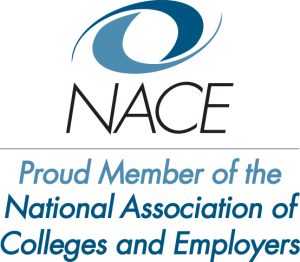How To Support First-Generation Students Through The College Admissions Process
Support for first-generation college students has become an increasingly common element on college campuses across the country. From individual workshops to cohort programs and tailored first-year experience courses–administrators are finding numerous ways to deliver the information and resources these students need to succeed in the college environment.
But as colleges and universities focus more and more resources on supporting first-generation students who are already on their campuses, a critical piece of the student journey is falling through the cracks: the admissions process.
Successfully guiding first-generation students through the admissions process is a critical component of enrolling a diverse student body. And admissions offices can make use of technology to provide a personalized advising experience that aids their enrollment goals while boosting student outcomes.
@jenbgose runs through the various ways in which you can support #FirstGen college students during the #CollegeAdmissions process using platforms like @pathway_u:Click to TweetWho Are First-Generation Students?
The term has become so commonplace on most college campuses, it seems like “first-generation” should be easy to define; but in reality, nailing down who, exactly, we mean by “first-generation” isn’t always an easy process. If a student’s parents attended some college but didn’t receive a degree, is the student first-generation? What if their parents did not attend college, but other close family members did?
Not all colleges and universities define first-generation in exactly the same way–but at the end of the day, we all recognize that these are students who are lacking certain social supports that can help them navigate college. From understanding the jargon that comes with life in academia (think: “credit hours,” “registrar,” “undergraduate”) to feeling comfortable advocating for themselves and making use of professors’ office hours, students who come from families that are not familiar with the college experience are at a much higher risk of leaving college. Worse yet, the gap doesn’t necessarily end once their degree is in hand–with new research showing that first-generation students earn lower salaries than other graduates even after earning a college degree. (Which, of course, makes quality and early career advising even more important.)
Advising For Diversity, Equity, And Inclusion
Effective support of first-generation students is also a critical component to a successful and comprehensive diversity, equity, and inclusion strategy for colleges.
Because many colleges’ first-generation populations include significant overlaps with other underrepresented groups, the same strategies and resources that help retain first-generation students also help retain minority students.
But if we don’t ensure these students are making it to campus in the first place, we’ve already failed them–and we’ve failed in the execution of a true diversity, equity and inclusion plan.
The admissions process remains the first–and biggest–hurdle for first-generation students, as they often receive less family support through the application process. For some, their family may simply be at a loss for how to help–but for others, their family may not see the value in a college degree, and may even actively argue against the student investing in college as a means to a career.
See how you can implement solutions like @pathway_u to help support #FirstGeneration students as they navigate through #CollegeAdmissions with advice from @jenbgose:Click to TweetLuckily, the same strategies that help with student retention can also help with enrollment.
So how do we support these students through application and admission?
With personalized, intentional, goal-oriented advising.
A Path Forward For Admissions
There are two specific tactics that admissions counselors can focus on as they strive to enroll first-generation students.
First: Provide a tailored experience with personalized advising.
In the age of social media, when even the advertisements we see are tailored to our browsing history and personal traits, personalization is becoming expected by all students. But for students who may already feel lost in the admissions process, personalized advising can feel like a lifeline. By understanding a student’s individual goals and interests, admissions counselors can point these students to relevant resources early in the admissions process.
Second: Help the student – and their family – connect the dots between college and career early.
Students who are feeling family pressure to choose a college–and a major–that will lead to a successful career can benefit from early-career advising, which in turn can help them feel more confident in their college decision.
PathwayU, for example, offers a way for admissions offices to do both. Through predictive science, this platform offers self-discovery and guidance, empowering learners to explore connections with vocations and professions where each student will find their greatest sense of purpose and meaning. This, in turn, helps the student choose the best educational pathway, connect to a particular school’s programs of study, and begin designing their future.
Admissions offices can offer PathwayU as a tool for students to use early in the admissions process, and then use the results to create tailored communications to groups of students based on their values, academic interests, and career goals.
The result: students who are highly engaged with the college, who understand their academic options, and who are designing their path forward long before they arrive on campus.
About The Author
Jen Gose has worked in higher education for eight years, including as the Director of Career Education for a small liberal arts college for over three years. She currently works in marketing for admissions and enrollment, where she uses her experience in career development to inform the recruitment process.
-1.png?width=288&height=67&name=PathwayU_PGLogo%20(1)-1.png)











